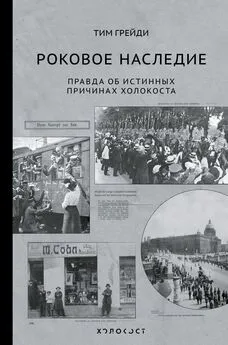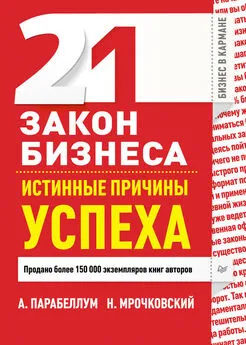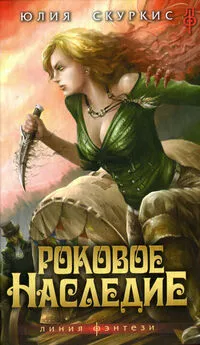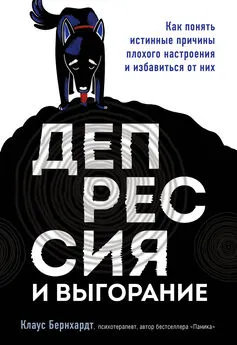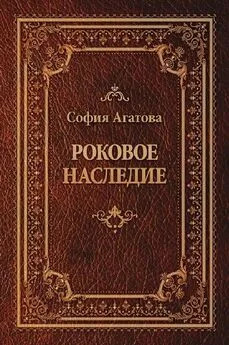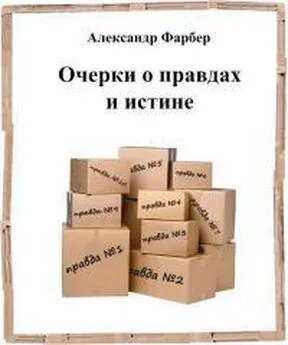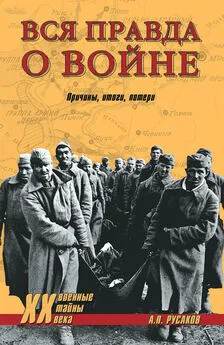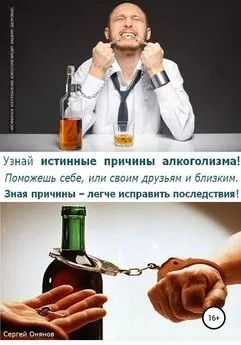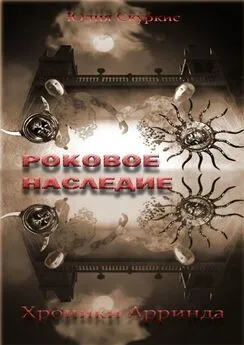Тим Грейди - Роковое наследие. Правда об истинных причинах Холокоста
- Название:Роковое наследие. Правда об истинных причинах Холокоста
- Автор:
- Жанр:
- Издательство:Литагент АСТ (БЕЗ ПОДПИСКИ)
- Год:2019
- Город:М.
- ISBN:978-5-17-109284-9
- Рейтинг:
- Избранное:Добавить в избранное
-
Отзывы:
-
Ваша оценка:
Тим Грейди - Роковое наследие. Правда об истинных причинах Холокоста краткое содержание
Роковое наследие. Правда об истинных причинах Холокоста - читать онлайн бесплатно ознакомительный отрывок
Интервал:
Закладка:
Gerhard Hecker, «“Metallum-Aktiengesellschaft”: Industrielle und staatliche Interessenidentität im Rahmen des Hindenburg-Programmes», Militärgeschichtliche Zeitschrift , 35 (1) (1984), с. 113–40.
– Walther Rathenau und sein Verhältnis zu Militär und Krieg (Boppard: Harald Boldt, 1983).
Ludger Heid, Oskar Cohn: Ein Sozialist und Zionist im Kaiserreich und in der Weimarer Republik (Frankfurt: Campus, 2002).
– Ostjuden: Bürger, Kleinbürger, Proletarier – Geschichte einer jüdischen Minderheit im Ruhrgebiet (Essen: Klartext, 2011).
Ulrike Heikaus, «Krieg! Juden zwischen den Fronten 1914–1918: Eine Wechselausstellung im Jüdischen Museum München» // Ulrike Heikaus, Julia Köhne (изд.), Krieg! 1914–1918: Juden zwischen den Fronten (Berlin: Hentrich & Hentrich, 2014), с. 8–44.
Ulrich Herbert, Best: Biographische Studien über Radikalismus, Weltanschauung und Vernunft, 1903–1989 (Bonn: Dietz, 1996).
– Geschichte der Ausländerpolitik in Deutschland (Munich: Beck, 2001).
– ‘Was haben die Nationalsozialisten aus dem Ersten Weltkrieg gelernt?» // Gerd Krumeich (изд.), Nationalsozialismus und Erster Weltkrieg (Essen: Klartext, 2010), с. 21–32.
Ludolf Herbst, Das nationalsozialistische Deutschland 1933–1945 (Frankfurt: Suhrkamp, 1996).
Rainer Hering, Konstruierte Nation: Der Alldeutsche Verband, 1890 bis 1939 (Hamburg: Christians, 2003).
Deborah Hertz, How Jews Became Germans: The History of Conversion and Assimilation in Berlin (New Haven: Yale University Press, 2007).
Holger Herwig, The German Naval Officer Corps: A Social and Political History 1890–1918 (Oxford: Clarendon, 1973).
– ‘Total Rhetoric, Limited War: Germany’s U-Boat Campaign, 1917–1918» // Roger Chickering, Stig Förster (изд.), Great War, Total War: Combat and Mobilization on the Western Front, 1914–1918 (Cambridge: Cambridge University Press, 2000), с. 189–206.
– ‘War in the West, 1914–1916» // John Horne (изд.), A Companion to World War I (Oxford: Wiley-Blackwell, 2012), с. 49–63.
Benjamin Carter Hett, Crossing Hitler: The Man Who Put the Nazis on the Witness Stand (Oxford: Oxford University Press, 2008).
Uta Hinz, Gefangen im Großen Krieg: Kriegsgefangenschaft in Deutschland 1914–1921 (Essen:
Klartext, 2006).
– ‘Humanität im Krieg? Internationales Rotes Kreuz und Kriegsgefangenenhilfe im Ersten Weltkrieg» // Jochen Oltmer (изд.), Kriegsgefangene im Europa des Ersten Weltkrieges (Paderborn: Schöningh, 2006), с. 216–36.
Jutta Höfel, Der belgische Lyriker Emile Verhaeren (Frankfurt: Peter Lang, 1994).
Christhard Hoffmann, «Between Integration and Rejection: The Jewish Community in Germany 1914–1918» // John Horne (изд.), State, Society and Mobilization in Europe during the First World War (Cambridge: Cambridge University Press, 1997), с. 89–104.
Young-Sun Hong, Welfare, Modernity, and the Weimar State, 1919–1933 (Princeton: Princeton University Press, 1998).
John Horne, Alan Kramer, German Atrocities, 1914: A History of Denial (New Haven: Yale University Press, 2001).
Patrick Houlihan, Catholicism and the Great War: Religion and Everyday Life in Germany and Austria-Hungary, 1914–1922 (Cambridge: Cambridge University Press, 2015).
Isabell Hull, Absolute Destruction: Military Culture and the Practices of War in Imperial Germany (Ithaca: Cornell University Press, 2004).
– The Entourage of Kaiser Wilhelm II, 1888–1918 (Cambridge: Cambridge University Press, 1982).
Christoph Jahr, Gewöhnliche Soldaten: Desertion und Deserteure im deutschen und britischen Heer 1914–1918 (Göttingen: Vandenhoeck & Ruprecht, 1998).
Harold James, «Georg Solmssen: Eine biographische Annäherung» // Harold James, Martin Müller (изд.), Georg Solmssen: Ein deutscher Bankier – Briefe aus einem halben Jahrhundert 1900–1956 (Munich: Beck, 2012), с. 11–52.
Harold James, «The Weimar Economy» // Anthony McElligott (изд.), Weimar Germany (Oxford: Oxford University Press, 2009), с. 102–26.
Margit Szöllösi-Janze, Fritz Haber, 1868–1934: Eine Biographie (Munich: Beck, 1998).
Konrad Jarausch, The Enigmatic Chancellor: Bethmann Hollweg and the Hubris of Imperial Germany (New Haven: Yale University Press, 1973).
Werner Jochmann, «Die Ausbreitung des Antisemitismus’ // Werner Mosse (изд.), Deutsches Judentum in Krieg und Revolution, 1916–1923 (Tübingen: Mohr, 1971), с. 409–510.
Heather Jones, «A Missing Paradigm? Military Captivity and the Prisoner of War, 1914–18» // Matthew Stibbe (изд.), Captivity, Forced Labour and Forced Migration in Europe during the First World War (London: Routledge, 2013), с. 19–48.
Anton Kaes, Shell Shock Cinema: Weimar Culture and the Wounds of War (Princeton: Princeton University Press, 2009).
Alexandra Kaiser, Von Helden und Opfern: Eine Geschichte des Volkstrauertages (Frankfurt: Campus, 2010).
Anthony Kauders, «Legally Citizens: Jewish Exclusion from the Weimar Polity» // Wolfgang Benz, Anthony Paucker, Peter Pulzer (изд.), Jüdisches Leben in der Weimarer Republik = Jews in the Weimar Republic (Tübingen: Mohr Siebeck, 1998), с. 159–172.
Jesse Kauffman, «Schools, State-Building and National Conflict in German Occupied Poland, 1915–1918» // Jennifer Keene, Michael Neiberg (изд.), Finding Common Ground: New Directions in First World War Studies (Leiden: Brill, 2011), с. 113–38.
Baldur Kaulisch, «Die Auseinandersetzungen über den uneingeschränkten U-Boot-Krieg inner-halb der herrschenden Klassen im zweiten Halbjahr 1916 und seine Eröffnung im Februar 1917» // Fritz Klein (изд.), Politik im Krieg 1914–1918 (Berlin: Akademie, 1964), с. 90–118.
Ian Kershaw, Hitler 1889–1936: Hubris (London: Penguin, 1998).
– ‘“Volksgemeinschaft”: Potenzial und Grenzen eines neuen Forschungskonzepts», Vierteljahrshefte für Zeitgeschichte , 59 (1) (2011), с. 1–17.
Martin Kitchen, The German Officer Corps 1890–1914 (Oxford: Clarendon, 1968).
– The Silent Dictatorship: The Politics of the German High Command under Hindenburg and Ludendorff, 1916–1918 (London: Croom Helm, 1976).
Rebecca Kobrin, Jewish Bialystok and its Diaspora (Bloomington: Indiana University Press, 2010).
Kristin Kopp, «Gray Zones: On the Inclusion of «Poland» in the Study of German Colonialism» // Michael Perrudin, Jürgen Zimmerer, Katy Heady (изд.), German Colonialism and National Identity (New York: Routledge, 2011), с. 33–42.
Andrew Noble Koss, «World War I and the Remaking of Jewish Vilna» (PhD, Stanford University, 2010).
Alan Kramer, Dynamic of Destruction: Culture and Mass Killing in the First World War (Oxford: Oxford University Press, 2007).
Christine Krüger, «Sind wir denn nicht Brüdern?» Deutsche Juden im nationalen Krieg 1870/71 (Paderborn: Schöningh, 2006).
Gerd Krumeich, «Die Dolchstoß-Legende» // Étienne François, Hagen Schulze (изд.), Deutsche Erinnerungsorte (Munich: Beck, 2001), с. 585–99.
Birthe Kundrus, Kriegerfrauen: Familienpolitik und Geschlechterverhältnisse im Ersten und Zweiten Weltkrieg (Hamburg: Christians, 1995).
Martin Kutz, «Fantasy, Reality, and Modes of Perception in Ludendorff’s and Goebbels’s Concept of «Total War”» // Roger Chickering, Stig Förster, Bernd Greiner (изд.), A World at Total War: Global Conflict and the Politics of Destruction, 1937–1945 (Cambridge: Cambridge University Press, 2005), с. 189–206.
Eleonore Lappin, Der Jude, 1916–1928: Jüdische Moderne zwischen Universalismus und Partikularismus (Tübingen: Mohr Siebeck, 2000).
David Clay Large, «‘Out with the Ostjuden”: The Scheunenviertel Riots in Berlin, November 1923» // Christhard Hoffmann, Werner Bergmann, Helmut Walser Smith (изд.), Exclusionary Violence: Antisemitic Riots in Modern German History (Ann Arbor: University of Michigan Press, 2002), с. 123–40.
Hagit Lavsky, Before Catastrophe: The Distinctive Path of German Zionism , (Detroit: Wayne State University Press, 1996).
Johannes Leicht, Heinrich Claß 1868–1953: Die politische Biographie eines Alldeutschen (Paderborn: Schöningh, 2012).
Jörn Leonhard, Die Büchse der Pandora: Geschichte des Ersten Weltkrieges (Munich: Beck, 2014).
Rainer Liedtke, David Rechter, «Introduction: German Jewry and the Search for Normality» // Rainer Liedtke, David Rechter (изд.), Towards Normality? Acculturation and Modern German Jewry (Tübingen: Mohr Siebeck, 2003), с. 1–12.
Anne Lipp, Meinungslenkung im Krieg: Kriegserfahrungen deutscher Soldaten und ihre Deutung 1914–1918 (Göttingen: Vandenhoeck & Ruprecht, 2002).
Vejas Gabriel Liulevicius, War Land on the Eastern Front: Culture, National Identity, and German Occupation in World War I (Cambridge: Cambridge University Press, 2000).
Uwe Lohalm, Völkischer Radikalismus: Die Geschichte des Deutschvölkischen Schutz- und Trutz-Bundes 1919–1923 (Hamburg: Leibnitz, 1970).
Edward Madigan, Faith under Fire: Anglican Chaplains and the Great War (Basingstoke: Palgrave Macmillan, 2011).
Tim Mason, «The Legacy of 1918 for National Socialism» // Anthony Nicholls, Erich Matthias (изд.), German Democracy and the Triumph of Hitler (London: George Allen, 1971), с. 215–39.
Trude Maurer, Ostjuden in Deutschland 1918–1933 (Hamburg: Hans Christians Verlag, 1986).
Anthony McElligott, Rethinking the Weimar Republic: Authority and Authoritarianism, 1916–1936 (London: Bloomsbury, 2014).
Susanne Miller, Burgfrieden und Klassenkampf: Die deutsche Sozialdemokratie im Ersten Weltkrieg (Düsseldorf: Droste, 1974).
Annika Mombauer, Helmuth von Moltke and the Origins of the First World War (Cambridge: Cambridge University Press, 2001).
Hans Mommsen, «Hitler’s Reichstag Speech of 20 January1939», History and Memory , 9 (1/2) (1997), с. 147–61.
George Mosse, Fallen Soldiers: Reshaping the Memory of the World Wars (Oxford: Oxford University Press, 1990).
– Freud, Jews and other Germans: Masters and Victims in Modernist Culture (Oxford: Oxford University Press, 1979).
– German Jews beyond Judaism (Bloomington: Indiana University Press, 1985).
– Germans and Jews: The Right, the Left, and the Search for a «Third Force» in Pre-Nazi Germany (London: Orbach & Chambers, 1971).
– ‘Jews and the German War Experience, 1914–1918», Leo Baeck Memorial Lecture , 21 (1977), с. 3–28.
Werner Mosse, «Einleitung: Deutsches Judentum und Liberalismus’ // Beate-Carola Padtberg (изд.), Das deutsche Judentum und der Liberalismus = German Jewry and Liberalism (Sankt Augustin: COMDOK, 1986), с. 15–21.
– ‘Wilhelm II and the Kaiserjuden: A Problematical Encounter» // Jehuda Reinharz, Walter Schatzberg (изд.), The Jewish Response to German Culture: From the Enlightenment to the Second World War (Hanover: University Press of New England, 1985), с. 164–94.
Sönke Neitzel, Harald Welzer, Soldaten: On Fighting, Killing, and Dying – The Secret World War II Tapes of German POWs (London: Simon & Schuster, 2011).
Читать дальшеИнтервал:
Закладка:
